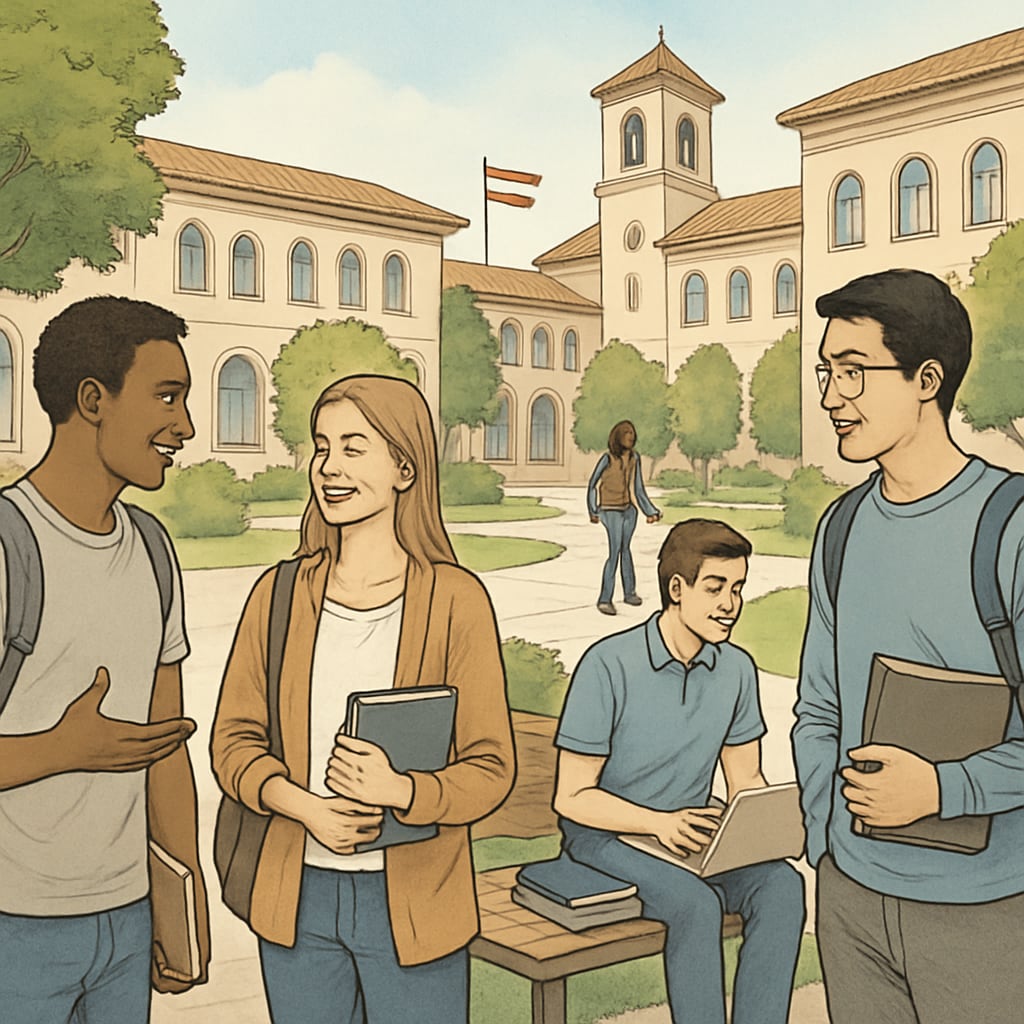Studying abroad in Spain presents international students with unique opportunities to experience world-class education while navigating cultural adaptation. For a 26-year-old Azerbaijani student pursuing a master’s degree, this journey is both a personal and academic milestone. Spain’s welcoming educational system, diverse culture, and practical strategies for integration make it an appealing destination for global learners.
Why Choose Spain for Higher Education?
Spain is known for its rich history, vibrant lifestyle, and prestigious universities. It boasts a strong reputation in fields like business, arts, and engineering, attracting students from around the world. Universities such as the University of Barcelona or IE Business School offer programs taught in English, making them accessible to non-Spanish speakers. Additionally, the country’s affordable tuition fees and living costs compared to many Western nations make it financially viable for international students.

Adapting to Spanish Culture: Challenges and Solutions
Although Spain is welcoming, cultural adaptation can still be challenging. For instance, the Azerbaijani student may find differences in daily schedules, social norms, and communication styles. Spanish people value relaxed interactions, which might contrast with more formal customs in Azerbaijan. Here are some practical solutions:
- Learn the Language: While many courses are offered in English, understanding basic Spanish can significantly enhance your experience. Apps like Duolingo or platforms like Cervantes Institute offer excellent resources for language learning.
- Engage in Local Activities: Participating in cultural festivals, joining student clubs, or exploring local cuisine can help bridge cultural gaps.
- Build a Support Network: Connect with fellow students, especially those from your home country, as they often share similar experiences.

The Educational System and International Inclusivity
Spain’s educational system is designed to accommodate international students through specialized programs and support services. Many universities have dedicated offices for international relations that assist with visa applications, housing, and orientation. Study methods in Spain emphasize practical learning and group collaboration, which might be a shift for students accustomed to lecture-based systems. Adjusting to this style not only enhances academic skills but also fosters teamwork and communication abilities.
Moreover, Spain’s emphasis on diversity ensures that students from various backgrounds feel included. According to Britannica, Spain’s multicultural landscape contributes to its growing popularity among international scholars.
Tips for Thriving as a Foreign Student in Spain
To fully embrace the experience and thrive as a foreign student, here are some additional tips:
- Embrace Flexibility: Spanish culture values spontaneity and leisure. Adapting to these traits can make social interactions more enjoyable.
- Plan Ahead: While Spain is known for its relaxed pace, universities follow structured academic calendars. Stay organized to meet deadlines and academic goals.
- Travel and Explore: Spain’s geographic diversity—from beaches to mountains—provides countless opportunities for weekend getaways.
As a result, students who immerse themselves in both academic and extracurricular activities gain a holistic understanding of Spanish culture while achieving their educational objectives.
Conclusion: A Bridge to Global Understanding
Studying abroad in Spain is more than an academic pursuit; it is a transformative journey that fosters personal growth and cultural understanding. By utilizing the tips above and leveraging Spain’s inclusive education system, international students can successfully adapt and thrive. For the Azerbaijani student, this experience is not just about earning a degree—it’s about building bridges across cultures and creating lifelong memories.
Readability guidance: The article is structured with concise paragraphs, practical lists, and clear transitions to ensure easy readability. It balances academic insights with personal strategies for cultural integration.


